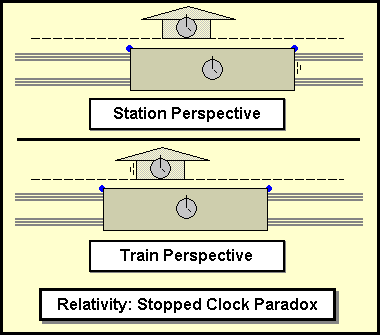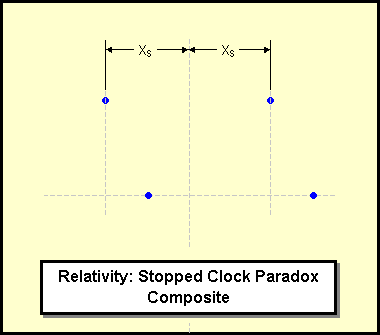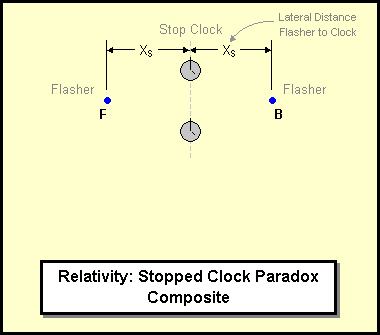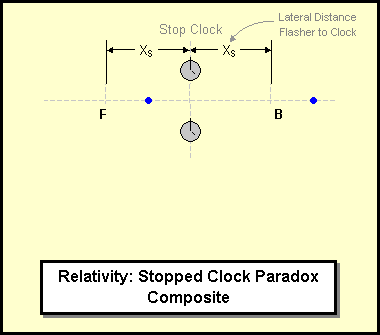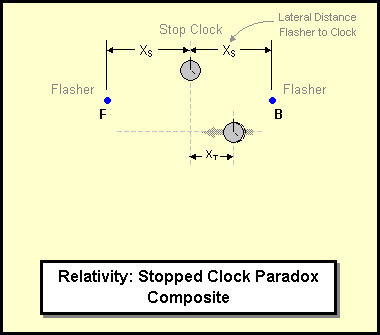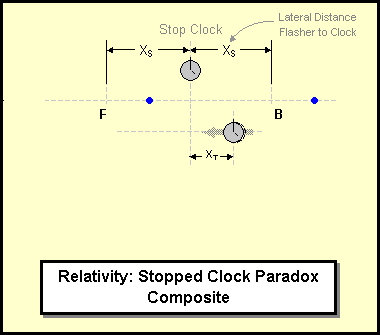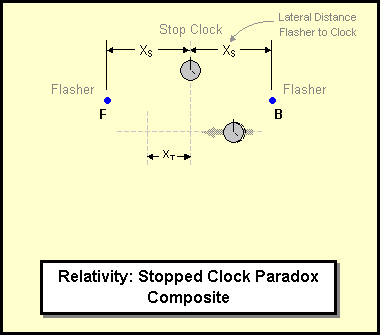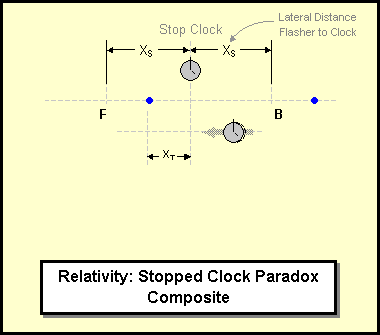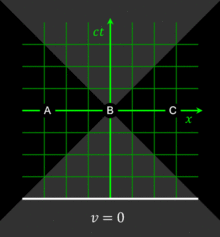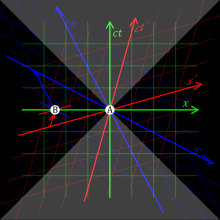Back to top Go down
View user profile Send private message Send e-mail
Sauwelios
bowstring
bowstring
avatar
Posts : 109
Join date : 2011-12-15
Age : 40
Location : Amsterdam
PostSubject: Re: Value Philosophy Sat Aug 29, 2015 3:54 pm Reply with quote Edit/Delete this post Delete this post View IP address of poster
Capable wrote:
Regrettably I don’t have the time to adequately work through the posts so far and get up to speed entirely, so first I’d like to state my understanding of the basic categories at work here, to make sure I get what this is about.
Quote :
Quote :
Value Philosophy: First philosophy is the positing of the metaphysics one values the most.
Value Metaphysics: Being is essentially Self-Valuing: beings exist inasmuch as they value themselves.
Value Axiology: Valuation is a rational value, as its disvaluation would disvalue itself, too.
Value Logic: Logic’s self-identical “A” is a value, and not necessarily a fact.
Value Ethics: It is just to consider things just, and unjust to consider things unjust.
Value philosophy designates an introductory state of philosophizing whereby one conceives one’s thought within the horizons of a metaphysical system or belief; this metaphysics, I am imagining could be either more or less well-defined and articulated (may at first consist only of a small number of metaphysical ideas in conjunction with a strong feeling of association/attraction to those beliefs), then would be a reflection of “what one values the most”, so perhaps at the time a person values the feeling of independence-freedom and also aspires to success in some way, ergo their metaphysics would firstly consist of a number of beliefs that reflect these values (maybe in this case they posit a metaphysics of will to power qua “success in one’s relations” and the value of effort/work to achieve goals; also by the first value the metaphysics at include notions of freedom and independence I.e. a “free will” or emancipatory undercurrent associated necessarily to reality)?
I think this is correct as far as it goes, though it’s not all there is to it. It reminds me of youtu.be/LvmSekZu__o 0:57-3:54. Value Philosophy does not designate just an introductory state of philosophizing. One can never completely transcend it; in the decisive respect one can never transcend it.
By the way, “first philosophy” is what Aristotle called metaphysics.
Quote :
Value metaphysics is stating the basic idea of self-valuing as FC conceived it. To be is to value oneself, to not value or to inadequately value oneself leads to no longer existing; “to exist” is defined simply as “successfully valuing in such ways as that which is doing the valuing is held in existence as itself, as such and such entity we say is that from and of which values are coming”, or perhaps also “to value means to exist”.
Yes. And note that Value Metaphysics is itself, following Value Philosophy, a metaphysics posited by those who value it more than any other metaphysics.
Quote :
Value axiology indicates the logic or rationale of valuing to be that of reality in so far as valuing oneself is necessary (to not value oneself leads to a loss of this “to not value”). All values are therefore and at their root or base, rational.
Actually, the only rational value I discern is the value of valuation itself. But insofar as valuing oneself means valuing oneself as a self-valuing and thereby valuing self-valuing itself, one’s self is indeed a rational value for oneself.
It may be helpful to note that, by “a value”, I mean “something one considers valuable”.
Quote :
Value logic, this one is more complex. I like this progression of categories into the idea of value and self-valuing, now we’re at a threshold it seems - “logic’s self-identical A is a value” means perhaps that the logical truisms and necessities such as A is A must be thought of not as “facts” but as “values” meaning they exist in the terms of the former categories here, namely that value is rational and self-necessitating because to not value (to not value well enough) precludes oneself from existing at all, thus precludes those values which one held from also existing. Logical postulates and truistic premises must be seen as the most basic, most universal or most necessary values, then.
To say these premises are “facts” would presumably, in the terms of the OP here, be to assert that they exist independent of the consequences which follow or do not follow from themselves; this would be an error, then. Even logic’s most necessary and undeniable premises must not be reified to a supposed status of objectivity or absolute independence-universality, in other words these logics are not primary but instead they represent something even more primary: the valuing consequences and conditions out of which those self-identical logics gain their presumed universal status.
Unless I’ve misunderstood that entirely…
To the contrary, I think you’ve understood it quite perfectly.
Quote :
Last one, value ethics: this seems to describe a culmination of the preceding categories, drawing a moral structure from the self-identical logic which we have previously grounded in the logic of self-valuing. That is just which follows from self-valuing, so what upholds one’s self-value through valuations adhering to the axiological structure and self-identical emergence; is morality then seen as deriving from self-identical logic and successful self-valuing? There is a distinction between saying that something is moral because it flows from a self-valuing proper self-identicalness, and saying that self-valuing requires that considering just things is just. How is morality understood in this categorical system?
Well, let me first point out that my list is by no means meant to be exhaustive: there may well be more than five items, there might even be less than five. The last item is in multiple ways a half-joke–one way being that I present it as a universal statement while it’s really a very personal statement (though the two are not necessarily mutually exclusive). Anyway, I think I can illuminate it a bit. From the “fact” that valuation is a rational value, I conclude that all things are just, as all things are valuation and nothing besides. You may want to compare my “The Philosopher King” thread’s OP, where I first formulated the fifth item: Heraclitus’ fragment 102 implies an equivocation of “just” and “beautiful” (or “noble”) and “good”. Everything is valuable, whether ethically or aesthetically or whatever other way. But one cannot live like that; or at least a human being cannot; or at least I personally cannot. How do I understand morality? As springing from one’s highest values. And one of my highest values is considering all things just. Therefore, I value the god extremely high and the wretch among human beings extremely low. The love of philosophy may be at odds with the love of wisdom.
Back to top Go down
View user profile Send private message Send e-mail
Capable
Tower
Tower
avatar
Posts : 5191
Join date : 2011-11-03
Location : calmly outside of time
PostSubject: Re: Value Philosophy Sat Aug 29, 2015 4:39 pm Reply with quote Edit/Delete this post Delete this post View IP address of poster
So as I see it then, inserting strong values-standards into all manner of our (at least more significant) conceptual differentiations. As you see all things as just, because everything is self-valuing and to self-value is just (because to not self-value leads to non-existence) then justice (or goodness, or beauty) is seen to be enfolded directly into the essential reality of all things, the philosopher’s just task it then becomes to discover those moral relations and values-differentials.
Ill add more later, just wanted to get that down quick.
“What are you?” asked Apollonius.
“We are gods,” said Icarus.
“Why are you gods?”
“We are gods because we are good men.”
Back to top Go down
View user profile Send private message Send e-mail
Fixed Cross
Tower
Tower
avatar
Posts : 6274
Join date : 2011-11-09
Location : the black ships
PostSubject: Re: Value Philosophy Sun Aug 30, 2015 3:00 am Reply with quote Edit/Delete this post Delete this post View IP address of poster
Sauwelios wrote:
Metaphysics in the Aristotelian/Heideggerian sense is about beings as a whole or the Being of beings. In other words, it’s cosmology and ontology. This is the reason I gave above. Moreover, epistemology may also be regarded as metaphysics.
I generally consider epistemology to be metaphysics, yes - keep in mind that VO is concerned with right (irrefutable) knowledge of being, not being without knowledge about it, or without knowledge of knowledge about it. See beforethelight.forumotion.com/t1-ontology ; the last paragraph of the OP in particular.
In principle, “value metaphysics” is an accurate term for value ontology.
Quote :
Quote :
Thus also, if N’s philosophy is will to power it is so (to N) under the conditions that the universe is will to power; one can not call N’s work will to power and claim ones own work is not, or at least not when one has understood what N meant.
I disagree. Thus in my Why I’m not a feminist thread, in my last reply to Uccisore, to which he never replied, I wrote:
You mention evidence, argumentation, and axioms as possible grounds [for moral stances]. But what would evidence be? Would it not have to be being spoken to by God or finding something written in the stars or something like that? As for argumentation, arguments ultimately rest on premisses, and those then have to be grounded on evidence or axiomatically. Lastly, an axiom is either just a postulate or a self-evident truth; and self-evident truth by definition depends on evidence: namely, self-evidence. So unless you have something good to offer instead of “or whatever” [he wrote: “evidence or argumentation or axiomatically or whatever”], the only alternative for morality’s being a matter of preference is revelation. This is exactly what I said in my OP.
Now as I said in that OP, whoever claims such revelation is in my view probably a madman or a liar or both. This is because I have, as far as I know, not experienced any such revelations whatsoever. In fact, I don’t see how a revelation would not require an infinite regress: each revelation would logically require another revelation to reveal that one’s interpretation of one’s experience as a revelation is not a misinterpretation… Bottom line: you’re preaching to a member of the choir, who however insists that we should emphasize our conditionality if we are not to seem pathological.
I have never given myself to conceive of a moral philosophy. For this reason mainly: I know that what is right for me is wrong for many, and vice versa.
What I can do is praise that which I think is good, do what I think is good, and this will be my morality, and others may or may not follow me. This is highly simplistic, but it is risky, for me, to venture into prescriptions for beings I may not understand.
See, a human is not principally different to my mind that, say, a cat. Like some one you know well, I generally trust cats more than I trust humans. A cat is a very accomplished form of self-valuing. If I set out to form a morality for humans, I might as well set out to form a morality for all animals. I can’t imagine I’d be fit for that.
Value philosophy, you say, is the practice of choosing the metaphysics that one values most. As a philosopher, my criterium for valuing a metaphysics is a) that I can not refute it (first condition) and b) that it applies effectively - i.e. that it grants power over what it analyzes.
Because I had found a flaw, something unexplained (perhaps you’ll recall our email discussion end 2010 “about love under will”, which was a prelude to the formation of the idea of self-valuing) in the will to power theory. VO makes the WtP hermetically, unquestionably true. This is why I value it primarily; my value philosophy is this: I am a philosopher, have intellectual consistency as my highest value, and thus am forced to value value ontology.
Quote :
In reliquishing that pretense, as you put it, the danger is that philosophy is reduced to mere Weltanschauungsphilosophie: see the first chapter of Leo Strauss’s final work (Weltanschauungsphilosophie means philosophy that is a Weltanschauung). In my “note” on that essay, I wrote:
In his discussion of aphorism 36 [of Nietzsche’s Beyond Good and Evil], Strauss says: “Precisely if all views of the world are interpretations, i.e. acts of the will to power, the doctrine of the will to power is at the same time an interpretation and the most fundamental fact”
Which is precisely why it is a fundamental fact; the two aren’t different aspects; it recognizes of itself that it is an interpretation, but recognizes it in such a way that this does not refute its absolute (human, verifiable, falsifiable) applicability.
Quote :
This reasoning can be applied as well to the existentialism from the first chapter. A Weltanschauung is literally a view of the world. Precisely if all Weltanschauungen are historical, historicism is at the same time historical and supra-historical: the philosophers are the step-sons of their time (paragraph 30 of the central chapter); philosophy is at the same time Weltanschauungsphilosophie and rigorous science. [The first chapter of the work is titled “Philosophy as Rigorous Science and Political Philosophy”.]
Value Philosophy is the synthesis of philosophy as rigorous science and Weltanschauungsphilosophie.
I do not acknowledge the difference. VO is a rigorous science and thus a reliable Weltanschauung. This is what matters to me as a thinker; now whether or not VO is a Weltanschauung, but whether or not it is a reliable one.
Quote :
Insofar as one is a philosopher, one seeks to be just, but also acknowledges or seeks to acknowledge one’s own necessary injustice. In fact, necessary injustice is itself just. But the philosopher’s necessary–natural–injustice drives him to “do justice” to all things by acknowledging their justice.
Here you get into a terrain I have never ventured. I see no necessary relationship of prescribed morality and natural behavior, except that it is (apparently) natural behavior to prescribe morality. Morality emerges from self-valuing, but not necessarily so. Knowledge comes first, but without perfect knowledge it would be impossible to produce a truly sound knowledge-based morality. So before VO, it was impossible to form a true philosophical morality. Perhaps with VO it is still impossible; the farthest I have come is my “self-valuing ethics”, which, as I now am finding out with the help of your books, is very much akin to the theories of Heraclitus and Anaximander. I am pleased to find this out - I am pleased to move beyond (back before) Socrates towards thinking trends of people that I value, whom I might like to “imitate” - Socrates represents to me the decay of philosophy into a plebeian art.
I know we have some battles to fight over that. Maybe we can use the Pentad to that end at one point.
Quote :
In your addendum to this, you say:
Quote :
I wanted to add this, that “A” = “A” is false in as far as “A” corresponds to anything besides “self-valuing”.
The only self-identical notion includes that of an equal difference to itself.
I’m not sure that I understand the last part. Do you mean that self-valuings are themselves composed of self-valuings?
Rather that their (id)entity is negatively reflected in their counterparts, and that this reflection is part of their (id)entity because it determines their environment. Basically it is saying that the positing of an entity only makes sense if there are entities amongst whom it is posited, an outside world. It is an argument for a pluralistic worldview. I.e. there is not one singular “will to power”, there is a general willing-to-power. The monster of energy has no heart. It would have to have an outside for that. I wonder if this clears that up.
Quote :
I’m also not completely clear about the first part. Do you mean “self-valuing” the gerund or “self-valuing” the (nominalized) participle? In German, “(das) Selbst-Wertschätzen” or “Selbst-Wertschätzendes” (not to mention the uncapitalized options)? Are you saying a self-valuing is or can be identical to itself, or the act of self-valuing?
The self-valuing of a self-valuing, qua self-valuing.
As you can see, there’s a reason I suggested you’d ignore that post in your response, it’s cognitive style is very much different and references Parodites. But, now that we’re there, the confusion is a result of being in the process of killing grammar so that god can be put to rest.
It is a superstition that nouns represent metaphysically different things than verbs. There is only activity. Any noun represents a ‘petrified verb’.
E.g.: A tree trees. A self-valuing self-values. Part of tree-ing is growing, and dying. But nothing, besides self-valuing itself, is necessarily part of self-valuing. It is the minimal notion, the only notion (that I know of) that is both sufficient and not prescriptive.
The notion only includes itself, but it includes more than one of itself. Thus the notion contains an ‘inner tension’, as Parodites might say.
Quote :
Quote :
I meant to suggest that the reverse has the more drastic implications, represents a more fundamental transvaluation of values, namely of valuing itself; but of course it works only in concord with the view that lifeless matter is valuing, which is the first premise. In concord, these two ‘ends’ (implications) of the logic help to redefine “consciousness”, a term which has misled man into believing that it is what separates us from the rest of nature, whereas it is simply our way of doing what all of nature does.
Consciousness is a form of (self-)valuing, not vice versa. I think we agree here.
So do I, and I find this paragraph excellent.
Thanks.
Quote :
Quote :
Note that the now refuted idea of consciousness has much to do with the moral dualism of Zoroaster and the Abrahamic religions: consciousness was defined as the gift whereby man could distinguish right (gods will) from wrong (the devils will).
In this sense “consciousness” is the very same illusion as “free will” (and belongs to the non-Aristotelean meaning of “metaphysics” that rule somewhere “beyond”).
I don’t follow this last bit. How is it the same? Couldn’t one be able to see the difference yet not be able to resist one’s “evil” urges? And couldn’t one have free will yet not be able to tell right from wrong?
Right, I suppose that possibility accounts for basically the entire history of religion.
The point I might have made better is that consciousness was once framed in moral terms; and that its institution (it being recognized collectively) likely emerged on moral terms as well; that is to say, before it was recognized collectively, it was likely a very terrifying and monstrous phenomenon. Man came a long way out of madness, because mind, it seems to me, must originally have been quite mad.
Not that this is necessary for value metaphysics to apply; this is all speculative.
My theories on consciousness and morality both are speculative; My theory on being is not. This is why I have trouble even conceiving of a bridge between the two.
Quote :
Quote :
Quote :
This nonteleological Übermensch is basically what Seung has called the Spinozan Übermensch. But he says there is also the Faustian Übermensch, who is equally ineradicable. The Faustian Übermensch believes in free will whereas the Spinozan Übermensch believes in determinism. But the antithesis of nonteleology is not necessarily free will but just will. Yet are “will” and “free will” not a tautology?
Yes. And “freedom” means the same as well.
Yes, at least in any positive sense I can think of.
Good that we agree, as this is a rather crucial point; will = freedom.
I could see this as a working political concept. I suspect that people will appreciate its profundity, even if many will dislike its implications. (It will work better than “might is right”, which includes a moral premise, which makes it untrustworthy as an equation).
(I do not believe morality can be formulated using equations. It must be asserted in terms of what people want; “people” both in general and in reference to the thinkers who set out formulating a morality. )
Quote :
Quote :
I can not speak to the Faustian and Spinozean types except in broad strokes, for example, I connect the Faustean to Blake, and the Spinozean to Schopenhauer. But the highest path is to lose sight of the difference between the two, between a deterministic universe and free will; to understand will (as in a relatively strong will to power) as that which is both determinator of the world, and bestower of freedom on that determinator.
Crucial insight: determinating is being-free (to oneself).
Well, it is the co-determinator of the world, which world consists entirely of such co-determinators. And the will is “free” in that, if there were no other wills (if that could in theory be the case), it would be absolutely strong. 'Tis, so to say, a case of many unstoppable forces being resisted by each other…
But absolutely strong - “free” - to do what? If a thing is alone, there is nothing to overpower; there is no way to exist; Hence, again the ‘cleaved reality implied by the singular concept’ of self-valuing.
In the singular case, the entity is rather absolutely constrained (in non-valuing).
Quote :
Quote :
Nietzsche accomplished the first part, the dehumanization of nature, and VO is the naturalization of humanity into this new form.
The latter is the “more fundamental” (or one might say, in this light, further progressed, completed) transvaluation of valuing, to which I referred above.
I cannot agree with this if you mean that Nietzsche just accomplished the first part. Nietzsche neither just accomplished the first part nor was it just Nietzsche who accomplished the first part. The first part has been accomplished by modern natural philosophy as a whole: consider, for example, BGE 22, where Nietzsche only completes that philosophy, by interpreting the course of nature not as lawful but as lawless. “This world is the will to power–and nothing besides! And you yourselves are also this will to power–and nothing besides!” (WP) 1067): this is the same order as above.
Interesting, very interesting - I consider N’s phenomenology to be a radical break with the natural philosophies up to that point.
I perceive the will to power doctrine as a veritable antithesis of Newtonean cosmology; it does away with the notion of cosmic harmony, of its 'perfect balance and unity (its godly nature); In scientific terms, WtP prescribes to Relativity and Quantum Physics. VO, which is WtP advanced, explains and harmonizes both of these immaculately, if I may say so.
I see VO as the first truly natural science; as the first exact formulation based on a truly natural world-view.
Quote :
Just don’t under(e)st(im)ate the refinement of the Heraclituean idea of “fire”. We only have fragments left of Heraclitus, after all.
Of course. And what we do have is very much refined, which is in fact why I refer back to it. I suppose what I meant is: with an evolved view of fire; most of all I refer to the gain in knowledge of chemistry, which is a field that would be radically potentiated by VO. (I’ve considered taking it up as an academic study for this reason)
Bluntly: Self-valuing logic is the logic of fire. All entities are thus “fires”, “plasma’s”.
Quote :
It doesn’t help to rephrase “inequality” in terms seemingly less antithetical. “Unequal” simply means “not equal”; “different” simply means “not the same”; “interactive” means “active but not separately so”; “willing to power” means “not impotent to power”. The assertion that life is will to power implies that life is not not will to power.
I disagree here - I maintain there is a marked difference in semantic substance between “Not impotent to power” and “willing to power”.
In this sense I take language more literally, less logically, less on faith; I do not believe that one can manipulate any phrase without altering its real, synthetic, understood meaning. “This chair is red” is not the same at all as “this chair is not not red”. To treat language as if it is mathematics is one of the errors Nietzsche set out to correct - Heidegger represents to me the refinement of the recognition of this task, but VO represents Heideggers never attained goal; an exact formulation of non-mathematical being.
Central to this possibility is the recognition of the central word in all of language - the word that includes the meaning of all other words; “value”.
This is probably the most controversial point I’ve been making, trying to make since 2011: there is a rank order of words. Words are very different species, and I do not mean the categories as we are taught in school. There are very different species among nouns and verbs. “Value” and “Valuing” are, so to say, king-words; their meaning rules over the meaning of other words.
Quote :
Quote :
I have not been dismissed, but only respected by the wise and imitated by the envious.
Are those the only two options?
By no means. But I meant to illustrate that I have no reason to doubt my politics. You are case in point; thew fact that you, of all people, recognize my work and its value (given that it claims Nietzsche’s heritage), this means that I can not have made too grave mistakes in how I present my philosophy.
Quote :
Quote :
But yes, this is precisely because I make no secret about what I am: a lord of mind (Mannaz, Man), an incarnation of world-fire. It is I, a being of all consuming passion and royal honor, who have forged this, not some anonymous lab-coat.
Yes (though it’s ironic that it was you who quite brilliantly concluded, a couple of years ago, that the contemporary equivalent to the Medieval philosopher’s exoteric guise of the priest was that of the scientist/scholar; you then seemed more inclined than me to adopt that guise,
At that point I was vet much weakened, and I was hypothetically entertaining the idea of such a role in terms of our mutually attempted, tentative framework of political philosophy, which was all in terms of Humanarchy. In my writing I’ve always represented the head of Zeus, which is to say Pallas Athena; and I will never actually be able to present a lab-coat, and I will also never want to hide myself. If someone ends up killing me for being too dangerous, I’ll be in good company.
Quote :
Quote :
No mediocre man could address the concept of value in such a majestic, naturalizing fashion. In this sense VO is a selecting device and only fit for our people – who are thereby defined.
But what about those in between the mediocre and such exceptions? Those who are potentially exceptional?
Capable and I have concerned ourselves with such people in the first years. Sometimes they turn out to be brilliant, but do so on their own accord, and rather in spite of our intended diplomacies. For the most part, people are nowhere near ready to commit to a form of thinking this comprehensive, a form that draws so much of themselves into their thoughts.
Understanding VO requires a great degree of freedom from hypocrisy. “Our people” are foremost the Frank (and free-to-themselves).
Quote :
By the way, that part about “M! M!” was an allusion to a story about the logical positivists (Russell etc.). A bunch of them had got together and were trying to establish a completely logical philosophy. One of them was given the task of yelling “M!” whenever any of them suggested anything metaphysical. Soon, they changed this to yelling “not M!” when any of them suggested something non-metaphysical.
I will let my imagination wander about what these non-metaphysical suggestions might have been, in good old Vienna, where this philosophy was born.
And really, this is something I want and expect for us - a physical stronghold. I want philosophy to wear a crown. It must inspire envy in the unwashed. Death to the ascetic form of the philosopher as outcast. I want the philosophers to have lovers, to own castles – I want them to thrive. The Othala of my politics: the luxury wherewith the philosopher may surround and adorn himself, as representing the esteem in which society holds him; this will be the mark of ascending culture. It is precisely the superior role of the philosopher that needs to be recognized if a culture is to be serious at all.
Very central to our task is thus the freedom from shame because of our pride. If I can not speak for you here, then hear this: very central to my task is to not be ashamed of my pride. Let others be ashamed of their lack if it, their lack of reason for it!
And let them withdraw into the shrubbery, and gossip; rather that they stay far away than that they disturb the glorious company I can afford to keep in this exalted condition, which, when explicitly cultivated, is an effective means to keep away the sordid. If I comported myself modestly, I would find myself unbearably pretentious, and a hypocrite. It is nature’s way of isolating, selecting.
My antitheses are Hume and Socrates.
" The strong do what they can do and the weak accept what they have to accept. "
Last edited by Fixed Cross on Sun Aug 30, 2015 5:55 am; edited 2 times in total
Back to top Go down
View user profile Send private message Send e-mail Online
Capable
Tower
Tower
avatar
Posts : 5191
Join date : 2011-11-03
Location : calmly outside of time
PostSubject: Re: Value Philosophy Sun Aug 30, 2015 5:51 am Reply with quote Edit/Delete this post Delete this post View IP address of poster
Sauwelios wrote:
Capable wrote:
Regrettably I don’t have the time to adequately work through the posts so far and get up to speed entirely, so first I’d like to state my understanding of the basic categories at work here, to make sure I get what this is about.
Quote :
Quote :
Value Philosophy: First philosophy is the positing of the metaphysics one values the most.
Value Metaphysics: Being is essentially Self-Valuing: beings exist inasmuch as they value themselves.
Value Axiology: Valuation is a rational value, as its disvaluation would disvalue itself, too.
Value Logic: Logic’s self-identical “A” is a value, and not necessarily a fact.
Value Ethics: It is just to consider things just, and unjust to consider things unjust.
Value philosophy designates an introductory state of philosophizing whereby one conceives one’s thought within the horizons of a metaphysical system or belief; this metaphysics, I am imagining could be either more or less well-defined and articulated (may at first consist only of a small number of metaphysical ideas in conjunction with a strong feeling of association/attraction to those beliefs), then would be a reflection of “what one values the most”, so perhaps at the time a person values the feeling of independence-freedom and also aspires to success in some way, ergo their metaphysics would firstly consist of a number of beliefs that reflect these values (maybe in this case they posit a metaphysics of will to power qua “success in one’s relations” and the value of effort/work to achieve goals; also by the first value the metaphysics at include notions of freedom and independence I.e. a “free will” or emancipatory undercurrent associated necessarily to reality)?
I think this is correct as far as it goes, though it’s not all there is to it. It reminds me of youtu.be/LvmSekZu__o 0:57-3:54. Value Philosophy does not designate just an introductory state of philosophizing. One can never completely transcend it; in the decisive respect one can never transcend it.
By the way, “first philosophy” is what Aristotle called metaphysics.
First principles, then.
I listened to that lecture clip… admittedly I almost stopped listening when he started talking about not knowing how to know the difference between dogs and human beings. Maybe he was being facetious or something.
In terms of “science” never being able to get rid of pre-scientific “common sense” thinking, you are paralleling this to Value Philosophy (VO in your terms) being a ground from which other philosophies or sciences or whatever are unable to ever really remove themselves? If this is the case and you square VO (the idea of self-valuing) with a kind of basic, introductory or “first principles” approach, I would say you have a simple view of what self-valuing means to FC and me. But I am speculating here, it is a stretch for me to engage this and try to understand what you mean… if you can elaborate that may help.
On his idea of historicism…in the sense that one cannot validate variously different epochal presuppositions or historically-evolved/dependent premises. Sure, if you simply ask “what do political philosophers mean by “a good society”?” it seems like there is a kind of unbreachable abyss between epochal, cultural or even individual ways of ideating philosophy or value. But that is just a very simplistic way of approaching these issues. Everything is a “function of the times”, certainly. But the times are also a function of things working beyond those times, we have moments in the world interacting with each other in very complex ways, some of them causal-direct and others more chaotic, random or daemonic in their logic. Even so, any given time/place is not some Gestalt-like existence from which people are supposedly philosophizing and living as if out of some absolute reductivity to that given time/place, as if history and future both reduce to any given present moment culture, society, ideas, technology, or whatever else aspect of the times we want to consider philosophically interesting. At best, this idea of historicism is saying something incredibly obvious as to border on the banal, while at worst is saying something that effectively cuts down the entire possibility of philosophy before it even begins – reducing man to a mostly empty mere image of philosophy wherein semantic games and mere conceptual reversals or “interesting observations” substitute for authentic philosophical work.
Taking the (in one sense, certainly given and accurate) idea of historicism as a reason to structurally disembowel the entire philosophical task and spirit before it even gets started, even under the guise of a supposedly critical and non-naive intent, is really the opposite of what we ought to be doing. I’m guessing that I probably have a much bigger problem with contemporary philosophy than you do.
Quote :
Quote :
Value metaphysics is stating the basic idea of self-valuing as FC conceived it. To be is to value oneself, to not value or to inadequately value oneself leads to no longer existing; “to exist” is defined simply as “successfully valuing in such ways as that which is doing the valuing is held in existence as itself, as such and such entity we say is that from and of which values are coming”, or perhaps also “to value means to exist”.
Yes. And note that Value Metaphysics is itself, following Value Philosophy, a metaphysics posited by those who value it more than any other metaphysics.
The problem here is with the concept of value itself, that valuing can be more or less conscious, “intended”, also it can be more or less philosophically interesting. The idea of valuing is sort of a catch-all term which prevents it from being exhaustibly understood in any easy way; hence why FC was able to turn the notion upon itself and form a ‘vicious circle’ like a black hole, a concept able to draw so many things around and into itself. The very vagueness and inexhaustibility of the notion of value is its strength as a philosophically-useful idea. But it requires an equally philosophically-inspired approach, and for that I cannot really do well with statements like “a metaphysics posited by those who value it more than any other metaphysics.” I mean no one sits around and draws up a list of all metaphysics they know and then ranks them in terms of which they value more and less, thereby concluding rationally that the one on top is the one most valued by themselves. Not that Im saying you are approaching it in such a crude manner, but the very idea that a metaphysics which one posits is thus posited because one values it more than any other metaphysics, is… almost too trustically simple to really be saying anything interesting, to me at least. But again please elaborate so I can better grasp your position.
Quote :
Quote :
Value axiology indicates the logic or rationale of valuing to be that of reality in so far as valuing oneself is necessary (to not value oneself leads to a loss of this “to not value”). All values are therefore and at their root or base, rational.
Actually, the only rational value I discern is the value of valuation itself. But insofar as valuing oneself means valuing oneself as a self-valuing and thereby valuing self-valuing itself, one’s self is indeed a rational value for oneself.
It may be helpful to note that, by “a value”, I mean “something one considers valuable”.
That’s good, because it does seem this is getting lost in linguistic confusions, but if we are talking about concrete valued things we can understand this here. To say a value is rational is to say it has a rationale or logic whereby one is justified to hold that value, justified in one sense or another. It may be rational to value being alive, it may also be rational to value dying; it may be rational to value loving another person, or it may be rational to avoid loving others and live alone; it may be rational to value a successful career and wealth, or it may be rational to value a minimal standard of living and a modest job. The situations, individuals involved and all pertinent contexts dictate which values will fall where and how.
Thus, to me, it makes little sense to say that “the only rational value I discern is the value of valuation itself”. I assume by this you mean “the only objectively [non-context-dependent] rational value I discern is the value of valuation itself”. But again, what is that really intended to accomplish? What is added to our understanding or conversation-investigation here by this? I would much rather dig into the concrete values themselves and think in terms of individuals, situations, and contexts rather than try to locate some seemingly absolute-objective, purely formal-categorical criterion by which we might semantically ground the term ‘value’, pertaining to the meaning of rationality and valuing.
I like to move upward, I do not much like to stick to low or simple levels of thinking, and in that sense I don’t usually try to search for the “most adequate idea” except as an exercise in formal expansion of my own conceptual categories, an expansion which I put to use in decidedly different and opposite kinds of investigations.
And I realize there is a language barrier between you and I, in terms of how we write (and probably also think) philosophy, so bear with me if that is the gist of the issue here.
Quote :
Quote :
Value logic, this one is more complex. I like this progression of categories into the idea of value and self-valuing, now we’re at a threshold it seems - “logic’s self-identical A is a value” means perhaps that the logical truisms and necessities such as A is A must be thought of not as “facts” but as “values” meaning they exist in the terms of the former categories here, namely that value is rational and self-necessitating because to not value (to not value well enough) precludes oneself from existing at all, thus precludes those values which one held from also existing. Logical postulates and truistic premises must be seen as the most basic, most universal or most necessary values, then.
To say these premises are “facts” would presumably, in the terms of the OP here, be to assert that they exist independent of the consequences which follow or do not follow from themselves; this would be an error, then. Even logic’s most necessary and undeniable premises must not be reified to a supposed status of objectivity or absolute independence-universality, in other words these logics are not primary but instead they represent something even more primary: the valuing consequences and conditions out of which those self-identical logics gain their presumed universal status.
Unless I’ve misunderstood that entirely…
To the contrary, I think you’ve understood it quite perfectly.
This distinction between values and ‘facts’ is not really as interesting to me, because I don’t conceive of facts in the same way, it seems. For that matter I probably don’t think about value or values the same way either. But I’m glad to know I understood your meaning here.
Quote :
Quote :
Last one, value ethics: this seems to describe a culmination of the preceding categories, drawing a moral structure from the self-identical logic which we have previously grounded in the logic of self-valuing. That is just which follows from self-valuing, so what upholds one’s self-value through valuations adhering to the axiological structure and self-identical emergence; is morality then seen as deriving from self-identical logic and successful self-valuing? There is a distinction between saying that something is moral because it flows from a self-valuing proper self-identicalness, and saying that self-valuing requires that considering just things is just. How is morality understood in this categorical system?
Well, let me first point out that my list is by no means meant to be exhaustive: there may well be more than five items, there might even be less than five. The last item is in multiple ways a half-joke–one way being that I present it as a universal statement while it’s really a very personal statement (though the two are not necessarily mutually exclusive). Anyway, I think I can illuminate it a bit. From the “fact” that valuation is a rational value, I conclude that all things are just, as all things are valuation and nothing besides. You may want to compare my “The Philosopher King” thread’s OP, where I first formulated the fifth item: Heraclitus’ fragment 102 implies an equivocation of “just” and “beautiful” (or “noble”) and “good”. Everything is valuable, whether ethically or aesthetically or whatever other way. But one cannot live like that; or at least a human being cannot; or at least I personally cannot. How do I understand morality? As springing from one’s highest values. And one of my highest values is considering all things just. Therefore, I value the god extremely high and the wretch among human beings extremely low. The love of philosophy may be at odds with the love of wisdom.
I understand this, but it isn’t the way I look at it. I don’t believe in pre-valuingly rationalizing ‘what we value’ either generally or concretely, I don’t think a person is capable of that and, if they were, it would amount to a kind of robotization of consciousness.
Values are spontaneous, irrational, they are excessive in Parodites’ sense of the word excess. They point the ways inward… they are not building blocks on which to create a certain/secure mind. Of course there is a sense in which it is quite true that “everything is valuable” and equally there is a sense in which what you say about not being able to live that way is very true; but what does this tell us about our human psychology, and further about the nature and structure of consciousness generally? I’m not seeking after conveniently irrefutable platitudes (I’m not saying that is necessarily what you are doing, but again, our respective approaches and languages are very different, it seems. That difference is either fundamental, in which case I would say you are merely seeking after conveniently irrefutable platitudes as a substitute for genuine philosophy, or the difference is more superficial and rooted in conversational difficulties in which case I think we can come to some agreement eventually, at least in theory. In any case I’m suspending judgment as to the nature of the differences between our respective approaches, and I hope something useful can emerge).
“What are you?” asked Apollonius.
“We are gods,” said Icarus.
“Why are you gods?”
“We are gods because we are good men.”
Back to top Go down
View user profile Send private message Send e-mail
Fixed Cross
Tower
Tower
avatar
Posts : 6274
Join date : 2011-11-09
Location : the black ships
PostSubject: Re: Value Philosophy Sun Aug 30, 2015 8:40 am Reply with quote Edit/Delete this post Delete this post View IP address of poster
This is where the Pentad can be put to use.
I can hardly believe we’ve not seen this before.
Why did we try to have discussions different from the more difficult one, of formalizing value ontology canonically? Because I was not ready, for one - and for various other reasons.
But the Pentad is designed specifically to engage as a group of disparate wills and intellectual languages into a coherent process of not dialectic, but something deliberately created as an alternative, - of the same kind, but perhaps more effective in disclosing the sort of truth that is actual truthfulness, not mere observation. To see the perspectives in reference to each other as a representation of a world. Antitheses are required - but lesser, and greater antitheses.
In Chinese Medicine, the Pentadic ordering of the organs (and their intertwining meridians, a system so complex no western man would even muster the patience to make conscious its entire infrastructure, but I give first hand testimony that that system works transformatively like nothing else I’ve seen) gives rise to two destructive orders and one procreative one. Therefore it seems sensible that we now conclude from these two chemical reactions, that you both - Capable and Sauwelios - should not border on one another in the order.
A definitive and reciprocal No between two members of a larger group could well be the beginning of most Earthly orders. My efforts could be seen as sickly consensus seeking, or as healthy will-to-organism-establishing, but they can best be understood as betraying a love for alchemy. It is somewhat dangerous to take on faith the merit of my faith in the outcome of a molecular bond; it may well turn out to be an explosive.
" The strong do what they can do and the weak accept what they have to accept. "
- Thucydides
Back to top Go down
View user profile Send private message Send e-mail Online
Sauwelios
bowstring
bowstring
avatar
Posts : 109
Join date : 2011-12-15
Age : 40
Location : Amsterdam
PostSubject: Re: Value Philosophy Sun Aug 30, 2015 5:13 pm Reply with quote Edit/Delete this post Delete this post View IP address of poster
1.
Fixed Cross wrote:
Sauwelios wrote:
Metaphysics in the Aristotelian/Heideggerian sense is about beings as a whole or the Being of beings. In other words, it’s cosmology and ontology. This is the reason I gave above. Moreover, epistemology may also be regarded as metaphysics.
I generally consider epistemology to be metaphysics, yes - keep in mind that VO is concerned with right (irrefutable) knowledge of being, not being without knowledge about it, or without knowledge of knowledge about it. See beforethelight.forumotion.com/t1-ontology ; the last paragraph of the OP in particular.
Knowledge of knowledge about it is what epistemology is about, but that need only be part of metaphysics if the nature of knowing is (co-)determined by the nature of being. Now I do not see how it could not be, but that does not mean that all metaphysicians have seen it like that, and thereby that epistemology is always a part of metaphysics.
Quote :
Quote :
Quote :
Thus also, if N’s philosophy is will to power it is so (to N) under the conditions that the universe is will to power; one can not call N’s work will to power and claim ones own work is not, or at least not when one has understood what N meant.
I disagree. Thus in my Why I’m not a feminist thread, in my last reply to Uccisore, to which he never replied, I wrote:
You mention evidence, argumentation, and axioms as possible grounds [for moral stances]. But what would evidence be? Would it not have to be being spoken to by God or finding something written in the stars or something like that? As for argumentation, arguments ultimately rest on premisses, and those then have to be grounded on evidence or axiomatically. Lastly, an axiom is either just a postulate or a self-evident truth; and self-evident truth by definition depends on evidence: namely, self-evidence. So unless you have something good to offer instead of “or whatever” [he wrote: “evidence or argumentation or axiomatically or whatever”], the only alternative for morality’s being a matter of preference is revelation. This is exactly what I said in my OP.
Now as I said in that OP, whoever claims such revelation is in my view probably a madman or a liar or both. This is because I have, as far as I know, not experienced any such revelations whatsoever. In fact, I don’t see how a revelation would not require an infinite regress: each revelation would logically require another revelation to reveal that one’s interpretation of one’s experience as a revelation is not a misinterpretation… Bottom line: you’re preaching to a member of the choir, who however insists that we should emphasize our conditionality if we are not to seem pathological.
I have never given myself to conceive of a moral philosophy.
Though that discussion was about moral stances, my quote from it was not necessarily about such stances. Then again, perhaps there is a way in which stances are always moral stances. More on this below.
Quote :
For this reason mainly: I know that what is right for me is wrong for many, and vice versa.
What I can do is praise that which I think is good, do what I think is good, and this will be my morality, and others may or may not follow me. This is highly simplistic, but it is risky, for me, to venture into prescriptions for beings I may not understand.
But don’t you claim to understand all beings in their most fundamental nature? As self-valuings? This, then, may be the grounds for a general morality.
Quote :
See, a human is not principally different to my mind that, say, a cat. Like some one you know well, I generally trust cats more than I trust humans. A cat is a very accomplished form of self-valuing. If I set out to form a morality for humans, I might as well set out to form a morality for all animals. I can’t imagine I’d be fit for that.
My girlfriend has a highly idealized view of cats. Anyway, what’s at issue here is the view of man as “the not yet fixed, not yet established beast” (BGE 62). Surely there is an obvious difference between humans and other animals, as Capable so fervently notes. As I quoted and wrote in my “The West. A Straussian metanarrative” thread’s OP, there is
“a humanity that, though it belongs to man as man, is not open to every man, since what he is necessarily he is not necessarily unless he knows that that is what he is necessarily. Without that knowledge he can be enchanted and made subject to perfect rule[.]” (Benardete, The Bow and the Lyre, page 87.)
“What Hermes does with the moly is to show Odysseus its nature (phusis): ‘It was black in its root, and its flower like milk; the gods call it moly, but it is hard for mortal men to dig up, but the gods can do everything.’ If the decisive action is the showing forth of its nature and not the revelation of its divine name, as if it were a magical charm, then the moly in itself is irrelevant. What is important is that it has a nature, and the gods’ power arises from the knowledge of its nature and of all other things. To dig up the moly is to expose to the light its flower and its root; they belong together regardless of the contrariety in their colors. It is this exposure and understanding of the nature of things that is difficult but not impossible for men. Odysseus, then, would be armed with knowledge. This knowledge saves him from Circe’s enchantment. Her enchantment consists of transforming a man into a pig, with its head, voice, bristles, and build, but the mind (noos) remains as it was before. His knowledge, then, is the knowledge that the mind of man belongs together with his build. They are together as much as the root and flower of the moly. There cannot be a change in one without a corresponding change in the other. Menelaus’s encounter with constant becoming, in which there are no natures, must have been an illusion. ‘There is in your breast,’ Circe tells Odysseus, ‘a mind that does not admit of enchantment’ (10.329).” (Benardete, op.cit., page 86.)
As most men do not know this unity, they are basically beasts, but since they can know it in theory, one can housebreak them solely with one’s logos.
::
Now Orpheus, of whom Bacon said that he “may pass by an easy metaphor for philosophy personified” (Wisdom of the Ancients, “Orpheus, or Philosophy”), was able to (opera-)housebreak even big cats with his lyre and voice:
“[B]y the […] sweetness of his song and lyre he drew to him all kinds of wild beasts, in such manner that putting off their several natures, forgetting all their quarrels and ferocity, no longer driven by the stings and furies of lust, no longer caring to satisfy their hunger or to hunt their prey, they all stood about him gently and sociably, as in a theatre, listening only to the concords of his lyre. Nor was that all: for so great was the power of his music that it moved the woods and the very stones to shift themselves and take their stations decently and orderly about him.” (ibid.)
To be sure, though, Bacon interprets this as follows:
“[Philosophy,] applying her powers of persuasion and eloquence to insinuate into men’s minds the love of virtue and equity and peace, teaches the peoples to assemble and unite and take upon them the yoke of laws and submit to authority, and forget their ungoverned appetites, in listening and conforming to precepts and discipline; whereupon soon follows the building of houses, the founding of cities, the planting of fields and gardens with trees; insomuch that the stones and the woods are not unfitly said to leave their places and come about her.” (ibid.)
This Orpheus did after having failed at natural philosophy; but ultimately he also failed at “philosophy moral and civil” (ibid.). Perhaps we Value Philosophers, then, having succeeded at the former, may also succeed at the latter. (Our success however is the culmination of modern natural philosophy as a whole.) In any case, Bacon interprets Orpheus’s second failure as follows:
“But howsoever the works of wisdom are among human things the most excellent, yet they too have their periods and closes. For so it is that after kingdoms and commonwealths have flourished for a time, there arise perturbations and seditions and wars; amid the uproars of which, first the laws are put to silence, and then men return to the depraved conditions of their nature, and desolation is seen in the fields and cities. And if such troubles last, it is not long before letters also and philosophy are so torn in pieces that no traces of them can be found but a few fragments, scattered here and there like planks from a shipwreck; and then a season of barbarism sets in, the waters of Helicon being sunk under the ground, until, according to the appointed vicissitude of things, they break out and issue forth again, perhaps among other nations, and not in the places where they were before.” (ibid.)
